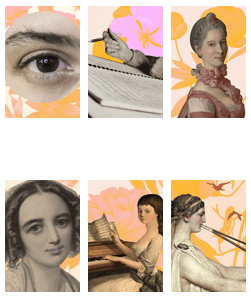EQUALITY & DIVERSITY IN CONDUCTING
Donne Report 2023/2024
NEWS | JULY 23 2024

Addressing Gender Inequality in Orchestral Leadership: A Call to Action
Over a month ago the Donne Foundation published its latest report, “Equality & Diversity in Global Repertoire,” revealing a concerning gender disparity in the classical music world. According to the report, 92.5% of the repertoire played by over 100 orchestras worldwide was written by men.
Additionally, the analysis identified the chief conductors or music directors for each orchestra, showing that 89.9% were men and only 10.1% were women. This analysis excluded guest conductors and orchestras without a set post for a conductor. The titles considered included artistic director and music director, among others.
The women who have managed to break through this glass ceiling include Simone Young, Marin Alsop, Elim Chan, Kristiina Poska, Dalia Stasevska, Eva Ollikainen, Han-Na Chang, Anna-Maria Helsing, Joanna MacGregor, Nathalie Stutzmann, and Mei-Ann Chen.


These statistics highlight the persistent gender imbalance at the highest levels of orchestral leadership. The lack of female representation in such influential roles perpetuates a cycle of inequality and deprives the industry of diverse perspectives crucial for innovation and cultural richness.
In a recent article for BBC Classical Music Magazine, conductor Mei-Ann Chen emphasized the urgency of addressing this issue. She said, “We’re racing with time – any social movement can be short. Orchestras planning several years ahead need to keep employing women conductors, not just for the social movement now, but for the quality they bring.”
Jessica Duchen, in the same article, pointed out, “Women in music, and conductors in particular, are still viewed as a ‘minority’ concern. But women are not a minority. They are more than half the population. The purpose of these exercises is to reach the point where special schemes, courses, competitions, discussions, and reports are no longer needed, because gender equality is a given. Some things are looking up – but there’s still a long way to go”
Reflecting on Gender Equality and Diversity in Repertoire
The pressing question arises: if more women were in charge of artistic direction of orchestras, would we see greater gender equality and diversity in the repertoire presented?
Evidence suggests that increased female leadership could indeed foster a more inclusive programming environment. Women leaders often understand to the importance of diversity and equity, both from personal experience and a commitment to broader cultural representation. As seen in other industries, diverse leadership often leads to more diverse and inclusive practices. For example, female-led organizations are frequently more likely to prioritize gender diversity in hiring and promotion decisions.
Additionally, women conductors and artistic directors are likely to bring fresh perspectives and champion works by other women and underrepresented composers. This could help break the cycle of the traditional, male-dominated classical canon and introduce audiences to a wider array of musical voices. As the Donne Foundation report and the article suggest, increasing the visibility of women in these roles can inspire and mentor the next generation of musicians and conductors, creating a ripple effect of diversity and inclusion.
Speaking at the Groundbreaking Women Summit 2024 Marin Alsop, a trailblazer for women in conducting who has achieved many “firsts” throughout her illustrious career, said,
“I am pretty shoked and I feel it’s pretty pathetic that we can be in the 21st century and still have firsts for women.” In 2002, Marin founded the Taki Alsop Conducting Fellowship, whose mission is to mentor, support, and promote women conductors as they advance in their professional careers. Since its inception, the Taki Alsop Conducting Fellowship has supported 36 women conductors, offering them comprehensive coaching, mentorship, and financial aid to further their careers. Remarkably, 22 of these fellows now occupy prominent roles as music directors or chief conductors in orchestras globally.
The gender disparity in orchestral leadership is a pressing issue that requires concerted efforts from all stakeholders within the classical music industry. By fostering an inclusive environment that values and promotes the contributions of women, we can enrich the cultural landscape and ensure a diverse and vibrant future for classical music. It is time for the industry to reflect the multicultural, dynamic world we live in, rather than clinging to outdated norms.
The Donne Foundation aims to continue to highlight these disparities and driving change. By providing detailed analysis and actionable insights, the report serves as a valuable resource for those committed to achieving gender equality in classical music. For further insights and detailed analysis, the full report by the Donne Foundation is available here. Let us work together to create a more equitable and inclusive future for the next generation of musicians.
Bring the Inspiration to the Classroom
Buy one of our gorgeous women in music posters and inspire the future generations of musicians!
Twitter: @donne_uk Instagram: @donne_uk LinkedIn: @donneuk Facebook: @donneuk









